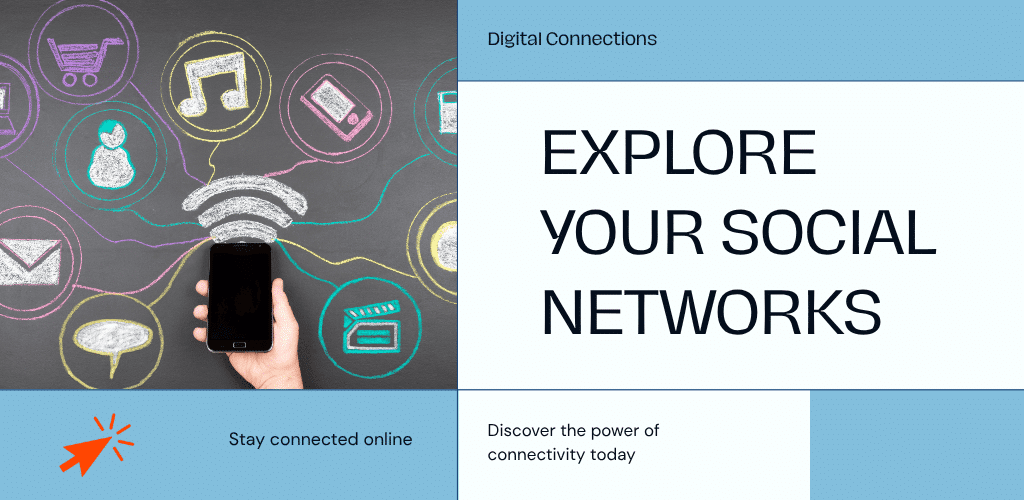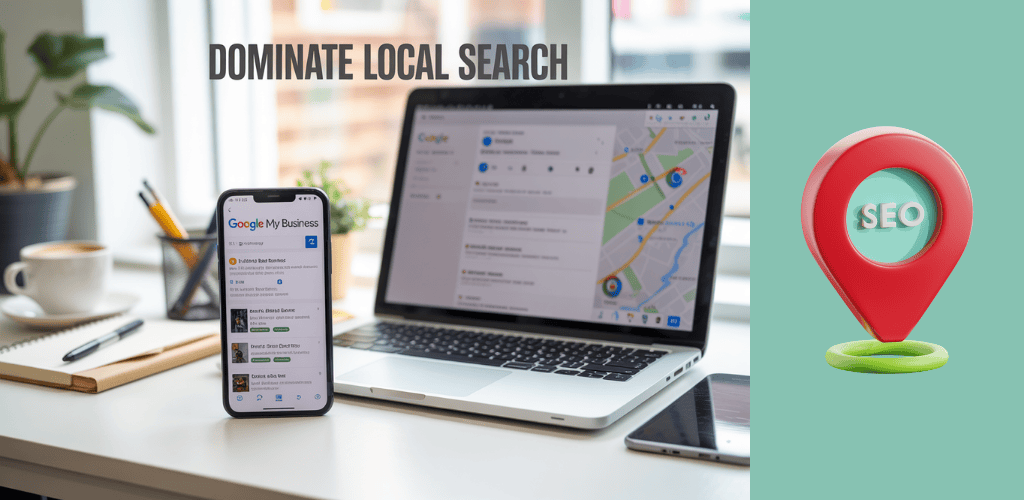Are you struggling to make your business stand out in a crowded marketplace? Imagine having a strong tool that shows your skills. It can also bring in visitors, increase sales, and make you a leader in your field. That’s exactly what a well-crafted business blog can do for you!
In today’s digital age, starting a blog for your business isn’t just a trend—it’s a necessity. Whether you’re a seasoned entrepreneur or just starting out, a blog can be your secret weapon to connect with your audience, share valuable insights, and ultimately grow your bottom line. But where do you begin? How do you choose your focus? And most importantly, how can you turn your blog into a profit-generating machine?
In this comprehensive guide, we’ll walk you through everything you need to know about why start a blog for a successful business. We cover many benefits of blogging. We help you choose your niche and find the right platform. We also show you how to promote your blog effectively.
Plus, we’ll dive into monetization techniques that can turn your passion project into a lucrative income stream. So, are you ready to take your business to new heights? Let’s dive in and discover why starting a blog could be the best decision you make for your business this year!
Table of Contents
Let’s Break Down Why Start a Blog Is a Smart Move
A. Enhance brand authority and expertise
You can significantly boost your brand’s authority and expertise through consistent blogging. By sharing valuable insights and knowledge in your industry, you position yourself as a trusted source of information. This not only helps you stand out from competitors but also builds credibility with your audience.
When you create high-quality content that addresses your customers’ pain points and provides solutions, you demonstrate your expertise. This can lead to:
- Increased trust from potential clients
- Greater recognition within your industry
- More opportunities for partnerships and collaborations
B. Drive website traffic and improve SEO
Starting a blog for your business is a powerful strategy to drive more traffic to your website and enhance your search engine optimization (SEO) efforts. Here’s how blogging contributes to these goals:
- Each blog post creates an indexed page, increasing your chances of appearing in search engine results
- Consistent blogging signals to search engines that your site is active, prompting more frequent checks
- You can target more keywords related to your business, improving your overall SEO performance
Businesses with blogs reportedly have 55% more website visitors than those without. This increased traffic can lead to more leads and potential customers for your business.
C. Increase conversions and sales
Your blog can be a valuable tool for increasing conversions and sales. By incorporating calls-to-action (CTAs) in your blog posts, you can guide readers towards taking desired actions, such as:
- Signing up for newsletters
- Downloading free resources
- Requesting product demos or consultations
These engagements help nurture potential leads and can ultimately lead to more sales. In fact, 56% of marketers affirm that blogging becomes more effective in driving conversions over time.
D. Foster customer relationships and engagement
Blogging allows you to connect with your audience on a deeper level. By consistently providing valuable content, you can:
- Build stronger relationships with existing customers
- Engage potential clients through informative and entertaining posts
- Encourage discussions and feedback through comments and social sharing
This engagement not only helps in customer retention but also in attracting new customers through word-of-mouth referrals and social sharing.
Now that we’ve covered the benefits of blogging for individuals and businesses, let’s move on to the next crucial step: choosing your blog’s focus. This decision will help you tailor your content strategy to effectively reach and engage your target audience.
Choosing Your Blog’s Focus

A. Identify your niche and target audience
To start a successful business blog, you need to pinpoint your niche and target audience. Consider these factors:
- Your expertise and passions
- Your business goals
- Market demand and potential audience size
Brainstorm potential niches by exploring:
- Industry-based topics
- Audience-specific themes
- Subject-based categories
Remember, the best niches combine your passion with market demand. Use tools like Google Trends to assess the popularity of your chosen niche and ensure there’s a paying audience interested in your content.
B. Align blog content with business goals
Your blog should serve as a powerful tool to support your business objectives. To achieve this:
- Define clear business goals for your blog (e.g., lead generation, brand awareness)
- Create content that addresses your audience’s needs while showcasing your products or services
- Ensure your blog’s focus complements your overall business strategy
By aligning your content with your business goals, you’ll create a cohesive online presence that drives results.
C. Brainstorm relevant topics and ideas
Once you’ve identified your niche and aligned it with your business goals, it’s time to generate content ideas. Consider these approaches:
- Analyze competitors’ websites for inspiration
- Use keyword research tools to discover popular topics in your niche
- Engage with your audience on social media to understand their interests
- Create a list of frequently asked questions in your industry
When brainstorming, aim for a mix of evergreen content and timely topics to maintain relevance and attract consistent traffic to your blog.
With your blog’s focus now clearly defined, you’re ready to move on to the next crucial step: determining where to start your blog. This decision will impact your website’s structure, design, and overall functionality.
Where Do You Start A Blog
Where to start a blog for free
You’ll be pleased to know that there are several platforms where you can start a blog for your business without any upfront costs. These free options can be an excellent way to test the waters and begin building your online presence. Here are some popular choices:
- WordPress.com
- Blogger
- Medium
- Wix
- Tumblr
When selecting a free blogging platform, consider the following factors:
- Ease of use
- Customization options
- SEO capabilities
- Integration with other tools
- Potential for future growth
While these free platforms offer a great starting point, it’s important to note that they may have limitations. As your business blog grows, you might find it necessary to upgrade to a paid plan or migrate to a self-hosted solution for more control and advanced features.
Remember that starting a blog for free doesn’t mean compromising on quality. Focus on creating valuable content that resonates with your target audience, regardless of the platform you choose. Consistency and relevance are key to building a successful business blog.
As you begin your blogging journey, keep in mind that the platform you select should align with your long-term goals. Consider how it will support your content strategy and integrate with your overall business objectives.
With your blog up and running, you’ll soon be ready to explore effective ways to promote your business blog and reach a wider audience. In the next section, we’ll delve into various promotion strategies to help you maximize your blog’s visibility and impact.
Promoting Your Business Blog

Leverage social media platforms
You can significantly increase your blog’s reach by utilizing social media platforms. Here’s how:
- Create engaging posts that introduce your new blog entries
- Use compelling headlines and visuals to capture attention
- Engage with your followers by responding to comments
- Consider using paid advertising to supplement organic reach
Remember, it’s better to maintain a few high-quality social media accounts than to spread yourself too thin across multiple platforms.
Build an email subscriber list
Email marketing remains a powerful tool for promoting your business blog. Your subscribers have already shown interest in your content, making them a receptive audience. To make the most of this channel:
- Provide engaging email content that adds value
- Monitor engagement metrics to refine your strategy
- Keep your newsletters simple and straightforward for higher click-through rates
Collaborate with influencers and guest bloggers
Expanding your network can greatly benefit your blog’s promotion efforts:
- Engage in cross-promotion with like-minded bloggers
- Participate in guest blogging opportunities
- Partner with influencers in your industry
Ensure that these collaborations are relevant and beneficial to both parties involved.
Repurpose content for different channels
Maximize the reach of your blog content by repurposing it across various platforms:
- Turn blog posts into eye-catching social media images
- Create YouTube videos based on your blog content
- Share tweetable quotes from your posts to encourage sharing on Twitter
By implementing these strategies consistently and persistently, you’ll be well on your way to building an impactful online presence for your business blog. With your promotion plan in place, you’ll be ready to explore monetization strategies in the next section.
Monetization Strategies

Display advertising
You can leverage display advertising to monetize your blog’s traffic. Platforms like Google AdSense allow you to easily integrate ads into your content. As your blog grows, you’ll have the opportunity to earn passive income based on clicks or views. Remember to balance ad placement with user experience to maintain reader engagement.
Affiliate marketing
Affiliate marketing is an excellent way to monetize your blog while providing value to your audience. You can:
- Promote products or services relevant to your niche
- Earn commissions on sales generated through your referral links
- Choose trustworthy affiliate partnerships that align with your brand
Always adhere to FTC disclosure requirements when including affiliate links in your content.
Selling products or services
Your blog can serve as a platform to sell your own offerings:
- Digital products (e-books, online courses)
- Physical products through print-on-demand services
- Consulting or coaching services
- Freelance writing for other blogs in your niche
Leverage your expertise to create products that solve your audience’s problems or meet their needs.
Sponsored content and partnerships
As your blog gains traction, you may have opportunities for sponsored content and brand partnerships. This involves:
- Writing posts about products or services for companies
- Ensuring sponsorships align with your blog’s focus
- Using platforms like Blog Meets Brand to connect with potential sponsors
Remember, authenticity is key when creating sponsored content to maintain trust with your audience.
With these monetization strategies in mind, you’re well-equipped to start generating income from your business blog. In the next section, we’ll address some frequently asked questions to help you navigate common challenges in business blogging.
FAQ’s
Why is it important to start a blog?
Starting a blog for your business is crucial for several reasons:
- Increased website traffic: Blogging can drive over 50% more visitors to your site, enhancing your online visibility.
- Improved SEO: Each blog post serves as an indexed page, increasing your chances of appearing in search engine results.
- Establishing authority: By sharing valuable content, you position your business as a trusted expert in your industry.
- Cost-effective marketing: Blogging is an affordable way to promote your products and engage with customers.
What are the benefits of blogging?
Blogging offers numerous advantages for your business:
- Enhanced brand visibility
- Higher conversion rates compared to paid ads
- Opportunity to build and nurture customer relationships
- Platform for sharing company news and updates
- Ability to repurpose content for social media and other formats
- Long-term traffic and lead generation through “compounding” posts
Which is a reason for blogging?
While there are many reasons to blog, some key motivations include:
- Driving conversions and profits: Your blog provides essential information that can persuade visitors to make purchases.
- Building authority: Showcasing your expertise and passion positions you as an industry leader.
- Educating consumers: Use your blog to inform customers about your operations, values, and goals, promoting transparency.
- Improving link-building efforts: Connect to authoritative sources to foster trust among customers and improve search rankings.
By maintaining a high-quality blog, you’re investing in a powerful tool that can significantly impact your business growth, customer engagement, and online presence.
Starting a blog for your business is a powerful strategy that can yield numerous benefits. By creating valuable content, you position yourself as an industry authority, drive more traffic to your website, and establish stronger connections with your audience. Remember that successful blogging requires commitment, consistency, and a clear focus on your niche.
As you embark on your blogging journey, choose a platform that suits your needs, develop a content strategy, and promote your posts across various channels. Don’t forget to explore monetization options as your blog grows. Whether you’re looking to boost conversions, enhance your brand’s visibility, or simply share your expertise, a well-maintained business blog can be an invaluable asset. Start your blog today and unlock new opportunities for growth and engagement in your industry.







